Five Modern Japanese Novelists
 Five
Five
 Modern
Modern
 Japanese
Japanese
 Novelists
Novelists
 Donald Keene
Donald Keene
COLUMBIA UNIVERSITY PRESS  NEW YORK
NEW YORK

Columbia University Press
Publishers Since 1893
New York Chichester, West Sussex
cup.columbia.edu
Copyright 2003 Donald Keene
All rights reserved
E-ISBN: 978-0-231-50749-3
Library of Congress Cataloging-in-Publication Data
Keene, Donald.
Five modern Japanese novelists / Donald Keene.
p. cm.
Includes bibliographical references and index.
ISBN 0-231-12610-7 (cloth : alk. paper)
1.Japanese fiction20th centuryHistory and criticism.
2. Authors, Japanese20th century. I. Title.
PL747.65 .K44 2002
895.6'34409dc21
2002073412
A Columbia University Press E-book.
CUP would be pleased to hear about your reading experience with this e-book at
The five authors whom I discuss in the following pages were men I knew and often met. I hesitate to call all of them my friends, not because there were disagreements, but because (in the cases of Tanizaki and Kawabata) our ages were so far apart that our relationship might be better characterized not as friendship but as repeated acts of kindness shown by two great writers to a young admirer. Mishima and Abe were close friends, and we met many times over an extended period of time. Shiba and I became acquainted some years after I had met the others, and although we met comparatively seldom, I thought of him as a friend; he certainly was a benefactor.
I should say how lucky I was to have arrived in Japan for study in 1953. At that time, there were few foreign students of Japanese literature, and famous writers, perhaps curious to see what we were like, graciously invited us to their homes and gave us freely of their time. Today it is by no means so easy for foreign students, even those who possess an excellent knowledge of the Japanese language and are better acquainted with Japanese literature than I was in 1953, to meet writers whose works they are studying. It is no longer unusual for foreigners to speak Japanese fluently, and the writers, like everyone else in Japan, are so much busier than they were fifty years ago that they have trouble finding time to meet foreign students of Japanese literature.
Early in my stay in Kyoto, I was lucky in having met by accident Nagai Michio, who would later have a distinguished career and serve as minister of education. Through him I met his friend from childhood days, Shimanaka Hji, the president of the publishing firm Ch Kron Sha, who in turn introduced me to many writers. I could not have had a better entre into the Japanese literary world.
I confess that I did not in every case take advantage of the opportunities I was given to know writers better. I remember, for example, the disappointment of my meeting with Masamune Hakuch, an author and critic about whom I would later write. A photographer, noticing Hakuch emerge from a restaurant at more or less at the same time as myself, stopped us both and asked to take our picture. He then asked us to chat for a few moments in order to make for a more natural photograph. I could not think of anything to say to Hakuch. I vaguely remembered his name but had never read a word by him. Hakuch obviously had not heard of me and had nothing to say. We stood side by side for some minutes in dead silence. Finally resigning himself to the situation, the photographer took our picture anyway, and the photograph, showing us standing stiffly apart and staring glumly at the camera, appeared in the Tky shimbun. Some months later, when I was doing research on the poet Ishikawa Takuboku, I discovered that Hakuch had known him well. I realized that if I had asked him, he could have told me much of interest, but I had missed my chance. I never saw him a second time.
This was not by any means my only missed opportunity, but there is no point in enumerating the many times that ignorance kept me from seizing once-in-a-lifetime chances to get to know writers whom twenty years later I would treat as major figures in my books.
Fortunately, however, I did not miss every opportunity that came my way. In particular, I was lucky to have known the five writers described in this book. But it never occurred to me (curses!) that I would forget our conversations, so I made no notes, kept no diary. I remember many things, but it is likely I have forgotten even more. If I had a better memory or the assistance of a diary, I might have been able to recall fresh, never-before-recounted anecdotes about Tanizaki, Kawabata, and Mishima rather than those that already have appeared in my Dawn to the West, a history of modern Japanese literature. I also have repeated descriptions of works by these three authors from my earlier work, but I hope that this book will be read by persons who might be daunted by the bulk of my history. Perhaps, because of the different context, the repetitions will seem not only forgivable but welcome.
Before arriving in Japan in 1953 I knew the name of only one living Japanese novelist, Tanizaki Junichir. It was by no means unusual at that time for a non-Japanese to be unfamiliar with contemporary Japanese literature, but I should have been better informed. I had studied Japanese literature as a graduate student at Columbia and Harvard and had taught Japanese for five years at Cambridge. I had published three books, including an introduction to Japanese literature that contains a chapter, Japanese Literature Under Western Influence, in which I discuss several works by Tanizaki but none by any other living writer.
Next page
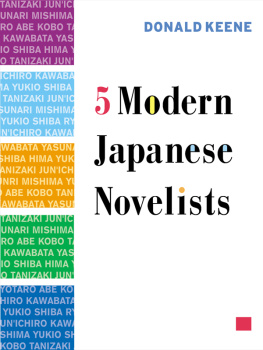
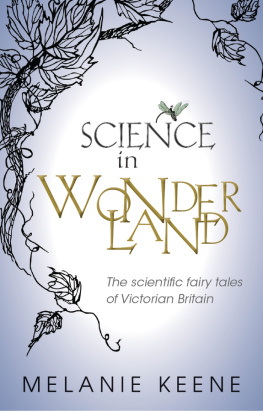

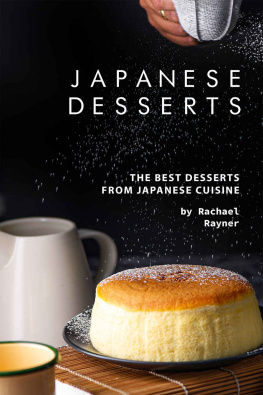
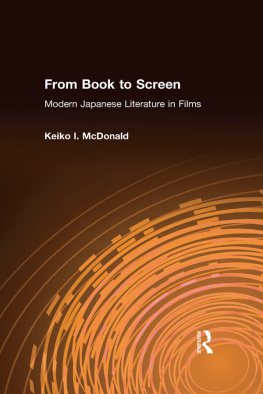
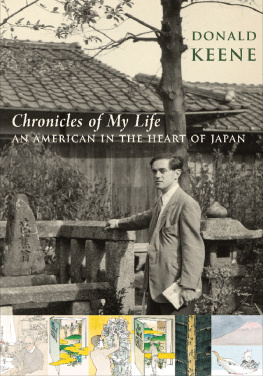
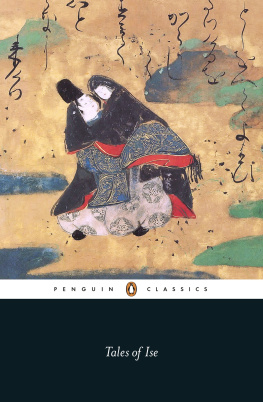
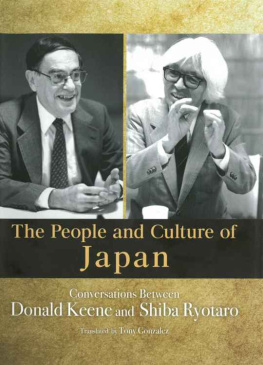
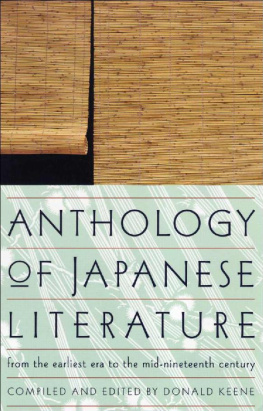
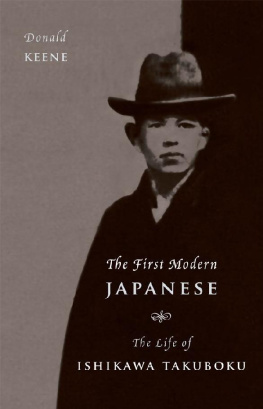
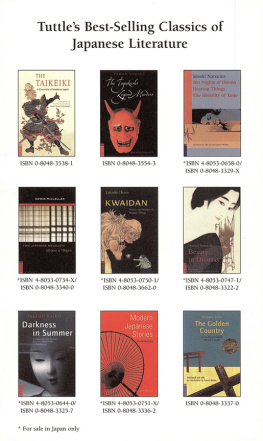
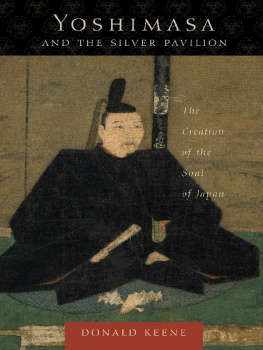
 Five
Five NEW YORK
NEW YORK
